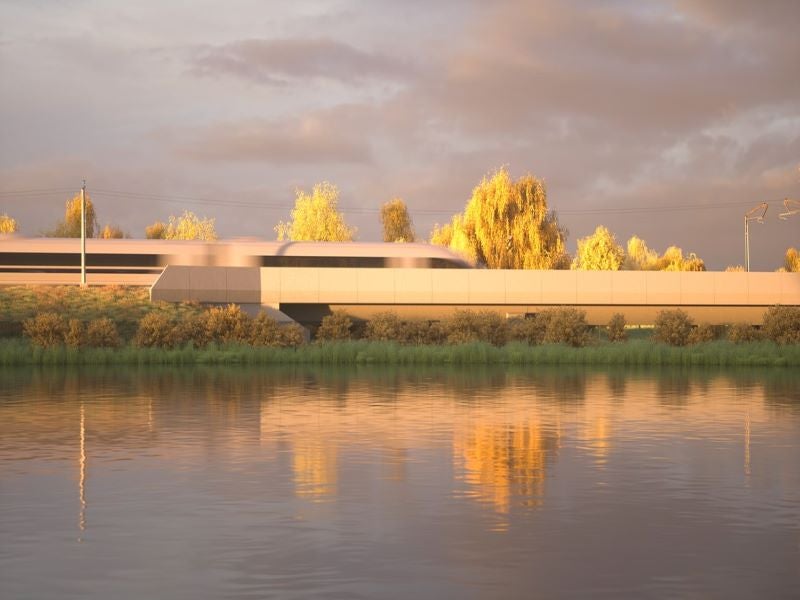
UK’s High Speed 2 (HS2) has unveiled the final designs of the Thame Valley Viaduct, which is situated within the Northern Vale and crosses the low-lying Thame Valley in South East England.
Designed to cross the flood plain of the River Thame, the 880m-long structure will enable HS2 trains to operate at speeds of up to 360km/h between London, Birmingham and the North.

Discover B2B Marketing That Performs
Combine business intelligence and editorial excellence to reach engaged professionals across 36 leading media platforms.
The viaduct’s construction will see all its key elements prefabricated prior to its assembly on site, lowering carbon footprint by around 66%.
It will be 3m above the ground with 36 25m-long neat and even spans that will cross the river and surrounding wetlands.
HS2’s main works contractor EKFB, including Eiffage, Kier, Ferrovial Construction and BAM Nuttall, designed the viaduct with the support of design partner ASC and specialist architects Moxon.
HS2 civil structures head Tomas Garcia said: “HS2 trains and stations will be zero carbon from day one, providing a cleaner, greener way to travel and helping the fight against climate change.”

US Tariffs are shifting - will you react or anticipate?
Don’t let policy changes catch you off guard. Stay proactive with real-time data and expert analysis.
By GlobalDataThe team will use two wide ‘box girder’ beams per span rather than eight smaller beams to expedite assembly.
The new lighter-weight structure is anticipated to curb 19,000 tonnes of embedded carbon compared to the earlier design.
Meanwhile, preparatory works for the new viaduct have already commenced near Aylesbury.
EKFBs technical director Janice McKenna said: “Cutting carbon during construction is a priority for EKFB as the team commences the building works of some of the main structures along its 80km section of HS2, and this process starts right at the initial design stages.”
Last month, HS2 also revealed the designs of the twin-bore 16km long tunnel, which will help reduce noise from trains that enter and exit at up to 320km/h speeds.



